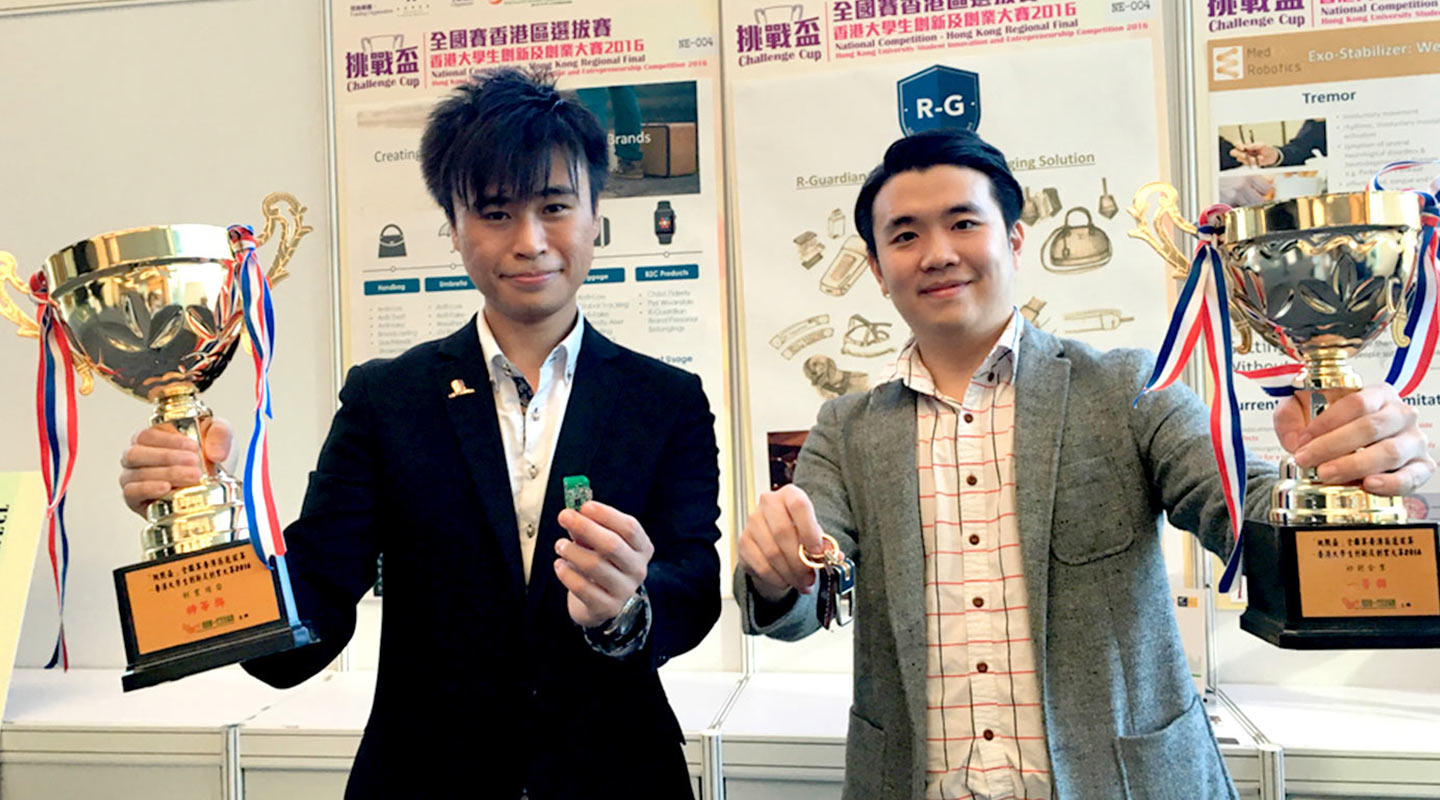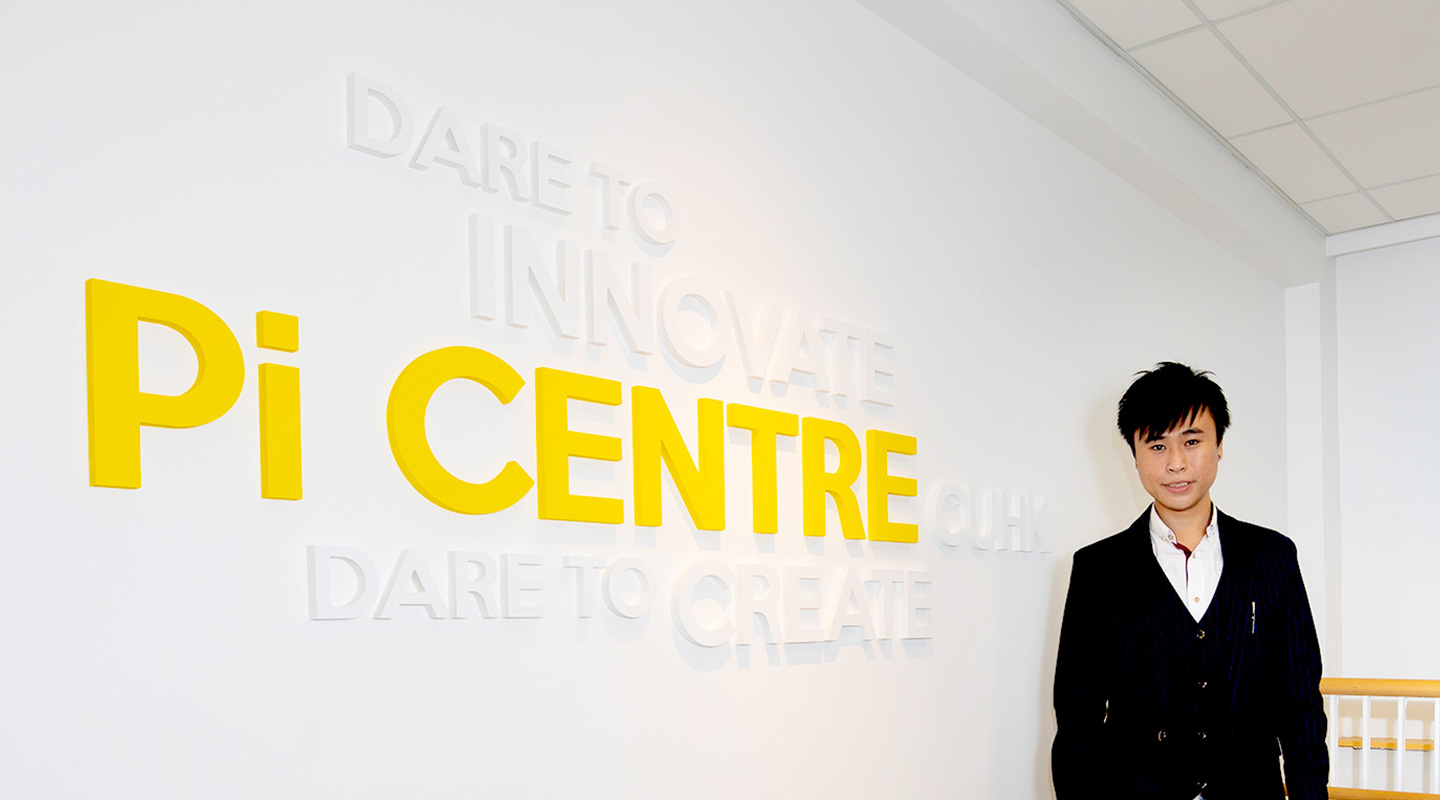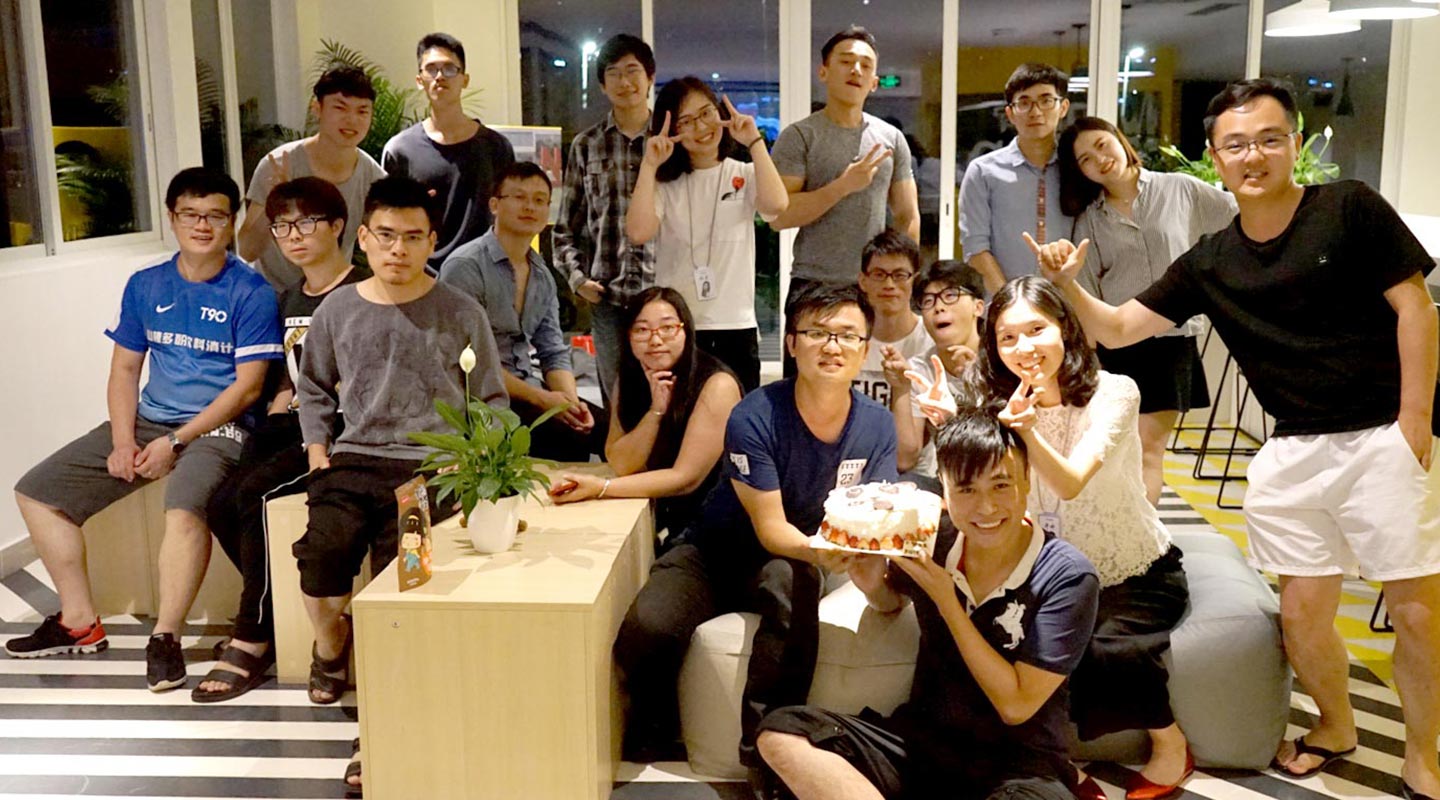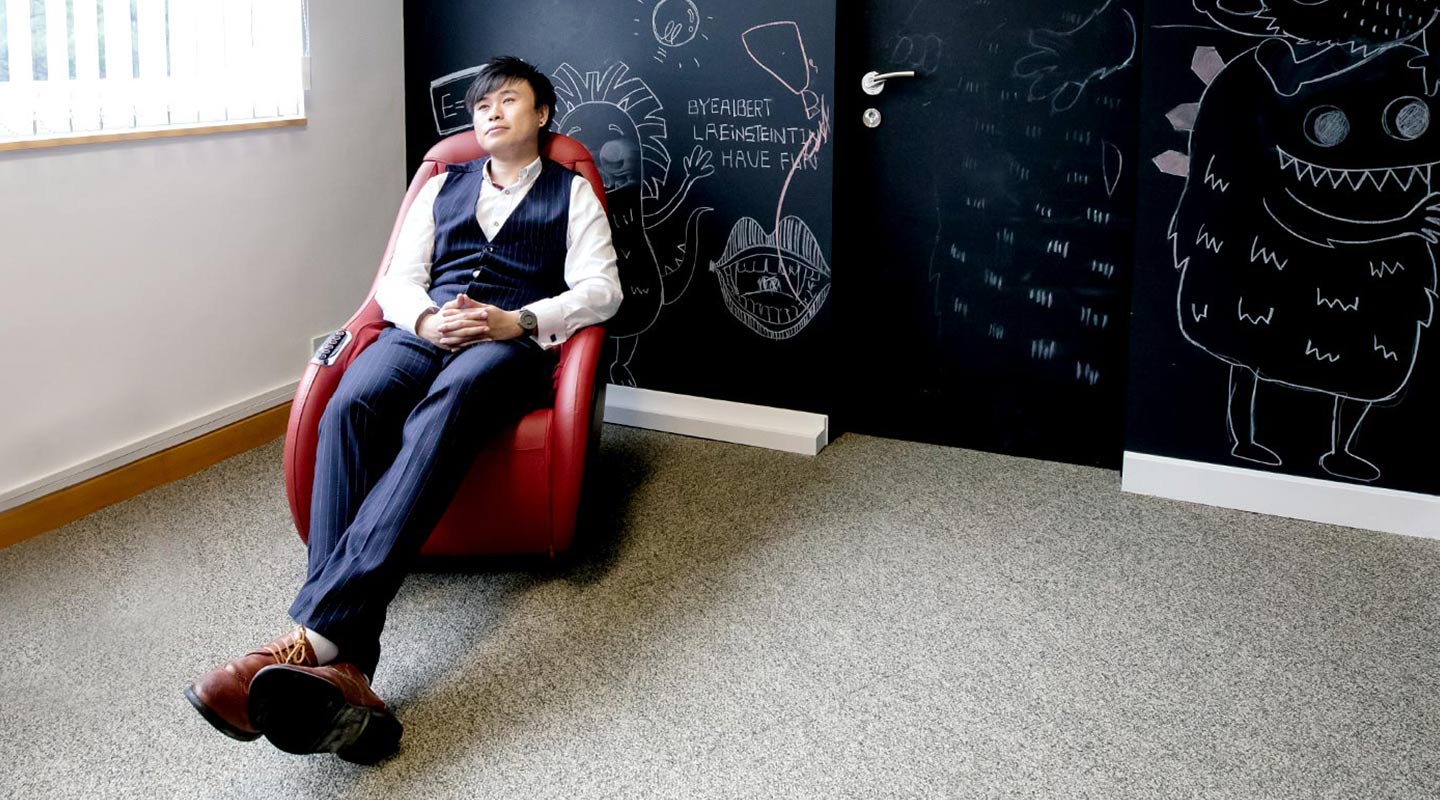Off to a Promising Start
Eric Kuo’s career path straight out of campus

At 27, Eric Kuo is definitely a millennial. Three years ago, while still a third-year student at the Department of Information Engineering, he already managed to kick-start his own business, R-Guardian. With an estimated valuation of over HK$100 million, his company offers IoT products including anti-theft solution for wallets, weather alert for umbrellas, built-in digital scale for luggage, etc. His startup path, however, began with a regret.
When he’s still small, his father resigned as a result of losing a USB flash drive containing important company information, landing his family in financial difficulties. Mindful ever since of his father’s painful experience, Kuo said, ‘I chose to study engineering at university so that I could invent something to spare people the pain of regret over their careless mistakes.’
From year one onwards he was always hard at work in the lab, so as to develop an anti-loss system to safeguard personal belongings. Eventually he zeroed in on the low-energy-consumption Bluetooth technology and developed a smart monitoring system by embedding a chip in the valuables.
During that time, he also got to know his perfect startup partner and co-founder-to-be of R-Guardian, Eric Lau, who studied actuarial analysis at the Faculty of Business Administration.
Both affiliated with Shaw College, they hit it off when they first met, chatting about all manners of things for hours on end. The two shared the same passions and aspirations regarding innovation and technology.

To test the waters for his new invention, Kuo took part in the HKIE Joint Institutes Innovation Competition, which was a first for him. But presenting his invention before a judging panel and audience freaked him out as public speaking was not his forte. ‘As a typical male engineer, I wasn’t good at communication. So I asked Lau—who’s articulate—to do the presentation for me.’
Having won in their first attempt, they, together with two other members of their team, found their way into the CUHK Pre-incubation Centre (Pi Centre), where they enjoyed free workspace, facilities and mentorship within a one-year period. Under the guidance of the Centre staff and with their nomination, the team participated in eight competitions in a year, winning championship on their home turf at both the Professor Charles K. Kao Student Creativity Awards and the Vice-Chancellor’s Cup of Student Entrepreneurship. Going on to represent CUHK, they kept up their winning streak in external competitions, including the Asia Venture Challenge and the Challenge Cup of the China College Students’ Entrepreneurship Competition.
One of the competition awards was a Fast Track pass for the Hong Kong Science Park, giving Kuo access to a rental-free office at the Park, taking his startup business on a new journey.

In what seemed to be a startup fast lane, however, he soon found himself facing a thorny impasse. While there was no lack of interested investors, none of them was willing to shell out. This made a most ruthless mockery of all the shiny trophies in his cabinet. ‘Lau and I didn’t make one cent that year. The company had to make do with all sorts of subsidies. We almost threw all the trophies into the dustbin.
“But neither of us ever said to the other, ‘We might as well just quit.’ So long as he could hang on, so could I. And the opposite was true,” Kuo quivered slightly.
Had it not been for the rough patch, there would not have appeared a third pivotal figure in the company. Having learned of his difficulties, Lee Ngai-chung, Kuo’s roommate and classmate from the same Department, quit his job to join the team and help tide them over. ‘A friend in need is a friend indeed. But he went even further by helping us at his own expense,’ Kuo said with a laugh.
Good things come to those with patience. Three months after Lee had joined the team, the trio finally secured their first-round financing worth HK$3 million. ‘Everybody was overwhelmed with excitement. Time for us to go for broke and expand our operations,’ he enthused.
In late 2016, taking advantage of the favourable startup policies in Shenzhen, Kuo decided to relocate his company’s R & D facilities from Hong Kong to the Qianhai Shenzhen-Hong Kong Youth Innovation and Entrepreneur Hub (E Hub) while keeping its Science Park office in Hong Kong. ‘Given the world-class hardware production capacity of Shenzhen and the unique position of Hong Kong in international market development, the complementary strengths of the two cities are conducive to startup growth.’
He now rents a room in the living quarters less than 200 metres from his office in Qianhai. The low-rent housing, merely 60% of the market price in the neighbourhood, is an ancillary facility to attract entrepreneurs to the E Hub. ‘Here you can find entrepreneurial talent from the mainland, the US, Singapore, Hong Kong and Taiwan. Just by chatting with others in the common areas, you get to know which factories have better quality or higher quality-price ratio.’

Working 12 hours a day, Kuo often looks up from his desk to find it is already 11 p.m. He walks back to the flat for a shower in just three minutes and goes back to the office if he wants to do more work. ‘This may sound like a nightmare for employees. But to entrepreneurs, it’s just perfect.’
From a prototype in his university lab to an enterprise employing 12 people with over HK$10 million worth of orders a year, the entire process has taken less than five years. Asked if this startup shortcut is typical or exemplary, Kuo responded, ‘Each entrepreneur has a different path. The only thing they have in common is that the path is invariably a thorny one. Entrepreneurs must adapt to or even enjoy the process.’
He revealed that his company has yet to achieve its desired goals and the future is still pretty hit-or-miss. ‘But I think what matters the most is not the final destination. The key is how I have conducted myself or what I have achieved during the journey,’ said Kuo with a marked firmness, as distinct from his otherwise soft, whispery voice.

Reported by Christine N., ISO
Photos by Eric Sin
This article was originally published on CUHK Homepage in Jun 2018.

